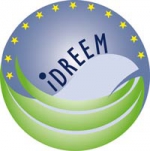IDREEM aimed to address the challenge of creating smarter and greener growth for European industry and developing more sustainable patterns of production. The project enabled and accelerated the development of Integrated Multi-Trophic Aquaculture (IMTA) across a range of European aquaculture sectors, creating new opportunities for SMEs. IMTA has two principal objectives: reduce pollution, and increase productivity and profit. It achieves these by recycling waste streams from conventional monoculture fed finfish aquaculture and providing them as secondary raw materials (food) for the growth of additional aquaculture products. The result is a production unit that uses manufactured fish feed and embedded energy input more efficiently and releases less potentially damaging effluent (organic and inorganic) into the surrounding environment. IDREEM also addressed the technical, economic, social and environmental dimensions of IMTA in a highly integrated, interdisciplinary manner that combines state of the art analysis and practical applications in SME pilots. The production and environmental dimensions was assessed under a unifying analytical framework - Life Cycle Assessment (LCA) and the economic and social dimensions will be analysed using a combination of empirical research and modelling, in order to understand the relative risks and benefits of IMTA as compared to finfish monoculture and develop decision-support tools for industry and policy makers. The proposal stems from a growing recognition amongst SME producers of the need to innovate to protect the long-term sustainability of the European aquaculture industry. It also provided a body of evidence (experimental and pilot) demonstrating the technical and economic feasibility of IMTA, and brought together some of Europe's leading aquaculture RTD SMEs and research institutes with a proven track record of past collaboration.
IDREEM – Increasing Industrial Resource Efficiency in European Mariculture
| Duration | 2012 - 2016 |
|---|---|
| Funding Body | European Commission FP7 Environment Programme |
| Project Costs | €4,206,435 |
| Project Co-ordinator | Scottish Association for Marine Science (SAMS) (Scotland) |
| Number of Partners | 15 |
| Website | http://www.idreem.eu/ |










